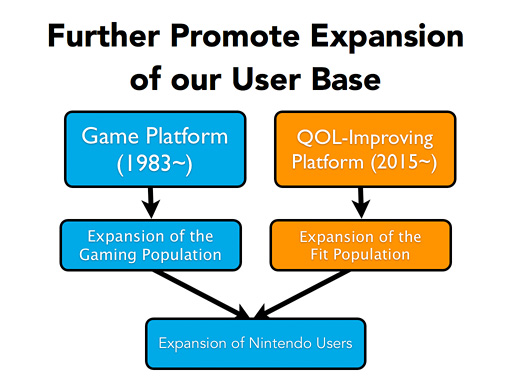Last updated on March 18, 2014

The cost of AAA game development is completely unstable. I know it, you know it, and so do the companies that make them. The budgets are too high, things costs too much, and consoles don’t rule the roost like in the good old days. Even the PC is turning into a relic of the past as tablets and smartphones replace them. Cheaper digital distribution makes it all but impossible to charge high costs for any games (unless you’ve got an established brand). There’s so much crap out there, but crap is cheap, and Flappy Bird / Angry Birds will fill your time void as effectively as a $60 release on launch day, if not more so. The market’s shifted, and consoles haven’t shifted with it.
What purpose would you buy a 3DS for? Or, let’s say, even a Wii U? I call “Nintendo game” a niche market, and you’d be hard pressed to disagree. The exclusivity of platform only works for high profits when you’re either 1. the only game in town or 2. bringing something new to an ailing market. Nintendo hit it big with the Wii, capturing a casual audience. With the advent of the tiny devices in your pockets that play games already, how can Nintendo sell you a new piece of hardware? The casual market went to cheap smart phone games, since the quality of the product was obviously irrelevant to that market anyway.

Economists call this the “opportunity cost”, the value of the best alternative foregone given a choice between several different exclusive choices with limited resources. Look, if you’re spending five hundred dollars on an iPhone with some sort of draconian oversight via Apple’s App Store, then you’re not in the market for a video game system/personal computer unless a ton of disposable income comes your way. When it comes to video games, an inessential product at best, why buy more hardware when the one you’re got provides infinite quantities of cheap, possibly free, entertainment? Answer me this question honestly, and you’ll see why there’s a distinct trend away from traditional gaming in all three console manufacturers.
Sony looks horrible; Playstation and the Japanese government literally keep the company afloat. Who even knows whether Sony will exist in a decade or so? Microsoft’s been making lots of money on the Xbox division, sure, but why do investors call for the company to abandon its game division? Many believe that the Entertainment division will never make enough money; no one denies the recent bump in revenue due to the Xbox One, of course, but it isn’t a long-term investment. One year of increase isn’t enough to make up for the lost money from the other years of Xbox (numbering somewhere in the billions!). Nintendo, as previously stated, wants to jump into healthcare. They’re adapting to a market which no longer exists in the form they desire, and so they need an exit option when things go south.
Even on the PC, things look bleak. Steam might dominate the digital distribution space, but why make Steam Boxes then? Obviously, because the personal computer turned into a dinosaur. There’s plenty of them out there right now, but who knows what will happen in the future? Valve knows this as well as anyone; making a PC into a console with your current library of games will keep attachment and buying rates high. Businesses look to the future, and that means making good guesses as well as adapting to a shifting landscape. Nobody was prepared for smart devices, and look what happened.

If things get too expensive with too little profit, then you jettison them slowly without making it look like abandonment. That’s how all of this looks to me, anyway. I can say this with good authority because my brother has a Master’s in Economics (appeal to authority up in the house!). I know at least enough to make an educated guess: video games as we know it will not exist in a few decades. The companies may not be the same, and even the whole scene will look different. We just happen to live within a small microcosm of the video game’s overall history.
Imagine this: nearly every sort of entertainment medium went through various phases over a longer period of time. Movies emerged in the late 19th century, and slowly progressed over that time period. A hundred years seems far longer than something in the range of video games’ fourty years (I mean as an actively developing thing). Novels slowly gestated over a period of three to four centuries, and people still experiment with it. Poetry and plastic arts exist, in our historical knowledge, for several millennium. None of these rose and fall within an instant, but I get the feeling that this may happen with video games. They arrived at cultural acceptance and ascendance so early that their second “crash” won’t look like one, but investors will surely call it one. Nobody’s telling any stock trader to buy into video games, that’s for sure (except for minor short-term increases).
Honestly, I’m not worried about this at all. If there’s a market for the games I like (and it still seems to exist, in spite of all the above), then I’ll be happy. If it collapses forever and consoles go along with it, I still have more than enough games for more than a few lifetimes. I’m honestly not sure how to play this gigantic backlog, and the death of gaming might give me some time to actually PLAY games rather than THINK about them. How’s that for optimism?
Christians know that everything will be alright (if they’ve got any good sense), and that God is in control. Do not fear the inevitable changing tide of anything in world. Live on the Rock, and don’t worry about it. Video games will change just as everything else, and, whether good or bad, deal with it when it comes. Worrying about future change isn’t gonna solve your problems.
Are not two sparrows sold for a cent? And yet not one of them will fall to the ground apart from your Father. But the very hairs of your head are all numbered. So do not fear; you are more valuable than many sparrows.
Matthew 10:29-31
